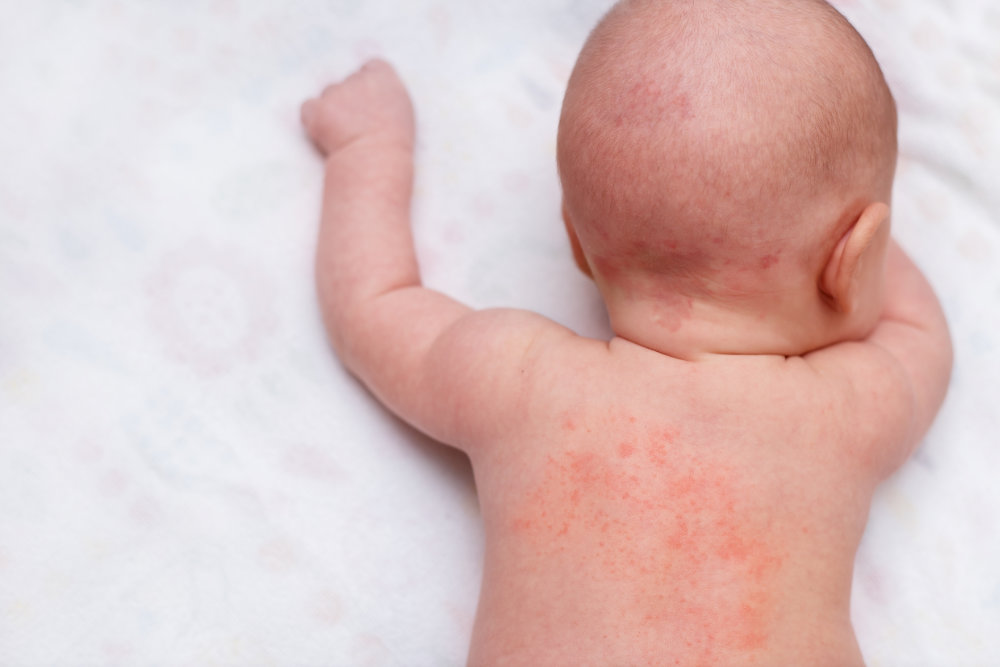If you’ve ever dipped your toes into the world of weaning, chances are you’ve come across this popular phrase. It’s often shared among parents as a comforting mantra, a reminder not to stress too much about those first spoonfuls. And while it can offer reassurance during what can be a messy, unpredictable journey, it’s not the whole story. In this blog, I’ll unpack what this saying gets right, where it falls short, and what it really means for your baby’s development.

When “Food before one is just for fun” is helpful..?
For many parents, “food before one is just for fun” feels like a lifeline. It suggests that milk whether breast or formula remains the primary source of nutrition in the first year, and that solids are more about exploration than sustenance. This, whilst also partially being very true can also be incredibly reassuring, especially when your baby throws more food on the floor than they actually get in their mouth.
It also helps to encourage a relaxed approach, allowing babies to play, squish, taste, and reject foods without pressure to eat up. And that’s a good thing, because mealtimes during weaning are SO much about experimentation and not about HOW MUCH is actually eaten.
Whilst the saying can be helpful in terms of knowing food should be fun. It’s really important for families to know that weaning is NOT JUST about fun. Food, even before one year of age, has many, many benefits and is a vital milestone for little ones for numerous reasons.
When “Food before one is just for fun” really doesn’t help
While the phrase has its merits, it’s not entirely accurate.
Weaning isn’t just about introducing solids and having fun with them. Weaning is a milestone for your baby, and it’s essential for transitioning your baby toward a balanced diet that is similar to us as adults. That means offering a variety of textures, flavours, and nutrients. It’s a time for learning: chewing, swallowing, self-feeding, and even learning social interaction at the table.

From around six months, babies also do begin to rely on solid foods for key nutrients too. Especially iron, zinc, and fat-soluble vitamins. Breast milk or formula alone can’t meet all their nutritional needs as they grow and develop, and they need to start getting some of their nutrition from solid foods.
This is a gradual shift or transition, and doesn’t happen overnight, which means that milk remains really important during the period between 6-12 months, (and milk is still important thereafter too) but solid foods also have a very important role during this period.
Additionally, food should be fun, yes, but it also plays a functional role. Aside from helping babies learn how to eat and offering them the right nutrients in combination with milk, food is also about skill building, developing taste preferences, and laying the foundation for a lifetime of healthy eating habits too.
The phrase “food before one is just for fun” makes it sound like food is optional, but in reality this is just not the case – food is essential, even during the first year of life. I’ll explain the above in more details below…
Nutrition needs before one
In the first 6 months, breast milk or infant formula provides all the nutrition a baby needs. At around 6 months of age, weaning starts and solid foods are introduced. This new food will not replace milk immediately, but should complement it (hence weaning is often referred to as “complementary feeding”).
From around 6–12 months, milk remains a key source of energy and nutrients. To find out about HOW MUCH milk is recommended, check out my blog on Milk Recommendations. However, as little ones progress through introducing solids and reach 3 meals a day, milk can play a smaller role.

Introducing a variety of solid foods is really important to support babies’ growth and development. There are lots of macro and micronutrients a baby needs, but there are some key ones that babies need during this period of rapid development including Iron, zinc, vitamin D, healthy fats, omega 3 fats and calcium.
Iron and zinc start to run low from 6 months as babies iron stores, which they have obtained from their mum during gestation, become depleted. Breastmilk alone is not sufficient enough to meet all of a baby’s iron needs, so iron the surplus iron needs must come directly from solid foods. Including an iron rich food with most meals will help to ensure they are getting sufficient iron. The following foods are iron rich foods. These iron rich meals for babies and toddlers are also useful.
- Red meat
- Poultry
- Beans, lentils and chickpeas
- Ground nuts – especially cashew nuts
- Seeds – in particular ground linseed, hemp seeds and pumpkin seeds
- Dark leafy green vegetables – kale, broccoli, swiss chard
- Tofu
- Dried fruits – apricots, figs and raisins
- Fortified breakfast cereals
Vitamin D – is needed for bone growth and development. However babies don’t get sufficient vitamin D from foods. Sunlight is the best source, so supplementation is necessary to get adequate amounts.
Healthy fats – Fat-rich foods include oils, spreads, dairy foods, fish, nuts, seeds, meat and avocado. When weaning your baby, concentrate on healthy fats such as avocado, olive oil, oily fish, ground nuts and seeds.
Omega 3 – is needed for healthy brain development and vision. Oily fish are the best sources such as salmon, mackerel and sardines. Those that don’t eat fish can get it from ground flaxseed, ground walnuts or chia seeds.
Calcium – is needed to build strong bones and teeth. Most of this will come from baby’s milk but as this reduces it is important to include calcium sources from dairy or dairy alternatives fortified with calcium.
If you are not sure if your baby is getting the right nutrition. You can check out my essential guide to nutrition during weaning.

The exploration of solid foods
Enjoyment of food is important for all of us but for babies and toddlers, exploring food in a fun way really helps to increase exposure to new foods and increase variety in their diets. We know from research that early exposure with (seeing, tasting, exploring) a variety of foods means that little ones are more likely to accept more variety as they get older too – reducing fussy eating or at least the severity of it.
Letting babies get messy with foods is also really important. Letting them see and explore food helps to build independence, self-feeding skills and sensory development skills that are all an important part of weaning too.
Sensory learning
Weaning is also about learning new textures, tastes, smells and being introduced to a variety of foods. This is important for the long-term acceptance of foods and helps little ones to be more open to trying new foods.
Developmental needs
Solid food is introduced to support their developmental needs, not simply to replace milk early on.
Exploring a variety of solid foods helps babies develop their oral motor skills and coordination. This is all part of learning to eat, using utensils, self-feeding and becoming more skilled at eating in general.
Early introduction of allergens
Around 6 months or earlier for high risk babies, allergens should be introduced gradually. Once first weaning foods have been introduced, such as some savoury veggies, as recommended in my book How to Wean Your Baby, it is recommended to introduce peanut and cooked egg allergens first. If allergens are deliberately excluded or delayed then this may increase the risk of developing a food allergy to the same food. To read more about introducing allergens during weaning check out this blog.

Final thoughts
Here are a few gentle reminders to keep in mind during your weaning journey:
- Food before one is just for fun – is supportive for parents but it’s NOT entirely accurate.
- Start with iron-rich foods like meat, lentils, and fortified cereals, after their first few tastes of veggies
- Offer variety – different colours, textures, and flavours help expand your baby’s palate
- Let them lead – babies are naturally curious, so follow their cues
- Keep milk feeds going, but don’t be afraid to let solids take up more space over time
- Make it fun, but also make it count
For more advice, take a look at my online weaning course.

Online Weaning Course
If you’re soon to begin your baby’s weaning journey, Charlotte’s Online Weaning Course is your complete step-by-step guide to introducing solids.
